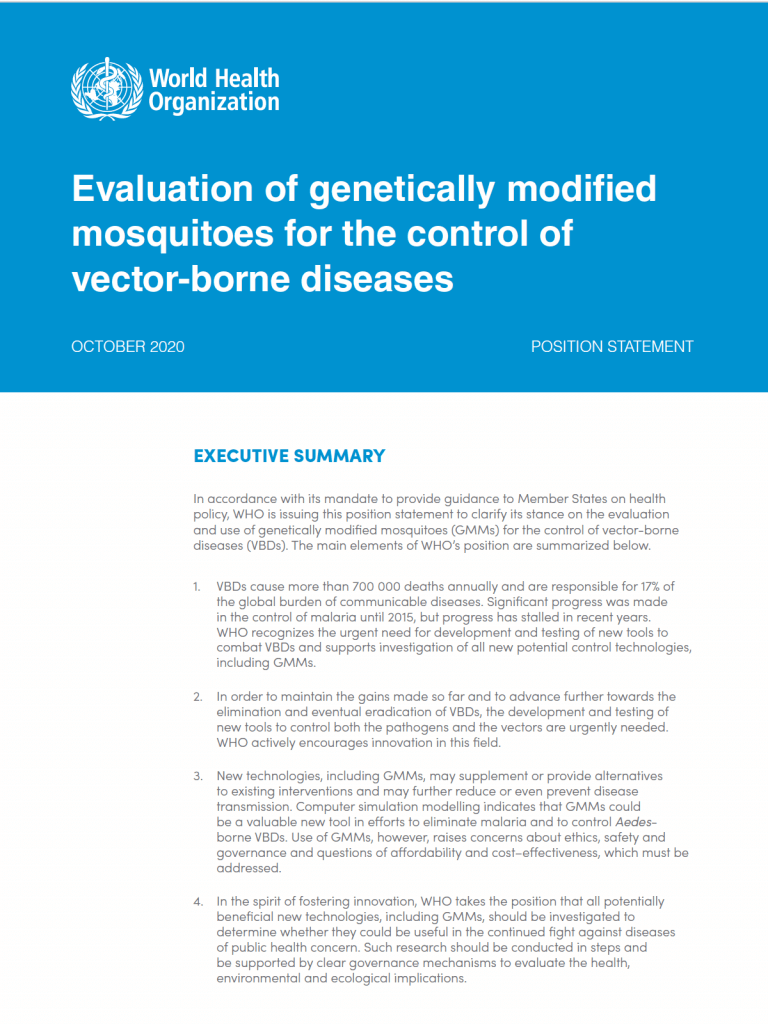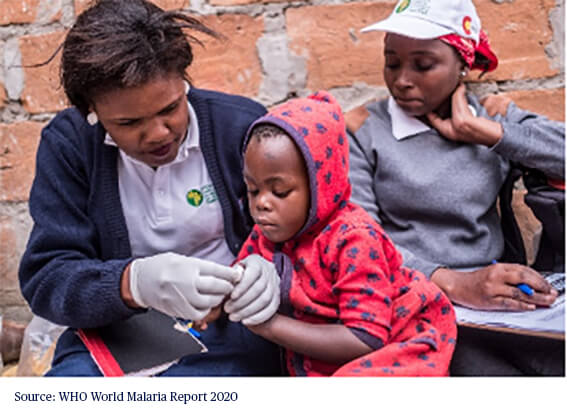WHO supports research on genetically modified mosquitoes for malaria control

The World Health Organisation (WHO) published on October 13 its official position on conducting research involving genetically modified mosquitoes for the control of vector-borne diseases. It fully supports research on genetically modified mosquitoes as novel tools to combat persisting vector-borne diseases, such as malaria, dengue and yellow fever which still afflict millions of people world-wide exerting a huge health and economic toll each year.

The statement also emphasises the need to ensure that new technologies are safe and efficient, recommending a step-wise development and evaluation approach with great care taken for environment and human health safety on risks assessment, as well as ethical considerations.
”In the spirit of fostering innovation, WHO takes the position that all potentially beneficial new technologies, including genetically modified mosquitoes, should be investigated to determine whether they could be useful in the continued fight against diseases of public health concern”. In addition, WHO guides that “such research should be conducted in steps and be supported by clear governance mechanisms to evaluate the health, environmental and ecological implications”.
The organisation has emphasised the need for novel tools before (see “Malaria eradication: benefits, future scenarios & feasibility”). However, this is the first time that WHO recognises the potential contribution of gene editing technologies to combat vector-borne diseases. The position statement is a milestone for Target Malaria and other scientists working in this field.

Nearly 80% of the population worldwide live in areas at risk of contracting at least one vector-borne disease, and more than half at risk of two or more. Today, vector-borne diseases are the cause of 700,000 deaths per year and are responsible for 17% of the worldwide burden of communicable diseases (WHO 2020). In the case of malaria, global death rates indeed dropped by 60% in the past two decades. From 2010 and 2018, the number of people infected also felt, from 251 million to 228 million (Global Fund 2020). Nevertheless, improvements have plateaued since 2015. We still count over 200 million infections and half a million death every year from malaria, the majority of which affecting children under five in Africa.
As well noted by Dr John Reader (Director of the Special Programme for Research and Training in Tropical Diseases), “these diseases are not going away. We really do need to think about new tools that could make an impact.” He noted that closing the door for research on novel tools – such as gene drive mosquitoes – would ignore the possibility of saving millions of lives and developing economies when malaria costs US$12 billion a year just in Africa.
The position statement recognises the value of research and innovation, and clearly indicates that WHO is not in favour of a moratorium.
I am personally delighted to see WHO’s support to researchers, such as those involved in Target Malaria, dedicated to making a difference in this field. Gene drive mosquitoes are not a silver bullet, but they are an important field of exploration; alongside other tools and methods.
